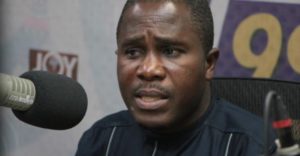An Energy Think Tank in the West African nation, Ghana, Institute of Energy Security (IES), believes a proposal by the Institute of Economic Affairs (IEA) asking the country’s President to adopt a new oil contracting model, in which oil companies are paid for each barrel of oil they recover, is not feasible, given the current situation.
Executive Director of IES, Paa Kwasi Anamua Sakyi argued that
Iran, Iraq, Bahrain, Saudi Arabia and Qatar, which IEA cited as countries practicing the proposed model, produce their oil onshore while Ghana’s oil exploration activities are taking place offshore.
In his view, onshore exploration is not as expensive as offshore exploration, which is more expensive and riskier than the former.
“When it comes to referencing a region’s Petroleum Contracting model to Ghana’s or West Africa’s, for example, one must not lose sight of other parameters.
“For instance, Iraq, Iran, Qatar and some of the oil producing countries in the gulf are basically extracting oil and gas from onshore, compared to Ghana where all of the country’s oil is produced offshore. The cost of producing a barrel of oil onshore is far lower than it costs offshore.
“Again, the countries in the gulf have been in the business of oil extraction for years compared to Ghana. Their oil fields are matured in kind and are, therefore, de-risked. In Ghana’s case, the oil fields are green and associated with risk for lack of data, and so the possibility of hitting a dry-well is high compared to Qatar and the rest,” he added.
In an article titled: “Why Ghana is so poor yet rich underneath the soil‘, the IEA noted that other poor African countries would learn from President Akufo-Addo, if he boldly accepts the new deal, as well as benefit from his example and leadership.
“This will be a mighty legacy, second to none! Africans are counting on you, Sir,” it said.
 Paa Kwasi Anamua Sakyi, IES Boss
Paa Kwasi Anamua Sakyi, IES Boss
But commenting on the issue, Paa Kwasi Anamua Sakyi thinks the president should not be in a haste to push for this proposed model.
According to him, the fact that these countries have produced oil for years gives them some form of leverage when it comes to contract negotiations for their technical capability.
He noted that Ghana is still building capacity when it comes to the business of oil exploration and production.
“Aside the technical capacity, the gulf states have their own national oil companies, which have built enough financial muscles to compete with foreign oil companies. This equally offers them some form of advantage when it comes to petroleum contracting.”
He underscored the need for Ghanaians or the president to remember that the economies of the mentioned Gulf States are stronger than Ghana’s.
The IES boss stated that Iran and others “can afford to postpone the recovery of oil, whereas Ghana will be tempted to compromise when it comes to contracting for the sake of dire need of revenues to address economic challenges.”
“We may get to where the IEA is proposing one day. Let’s keep on building GNPC’s capacity, in both financial and technical sense,” he concluded.
















